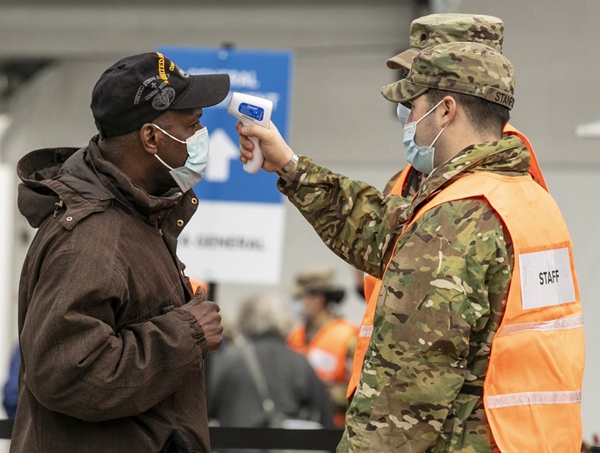
A man has his temperature taken before entering a mass COVID-19 vaccination site at the United Center in Chicago, the United States, on March 10, 2021. [Photo/Xinhua]
Over 6,000 infection cases of coronavirus variants have been reported in the United States as of Sunday, according to the latest data of the U.S. Centers for Disease Control and Prevention (CDC).
The vast majority of these cases, 6,390, were caused by the variant known as B.1.1.7, which was originally detected in Britain.
There were 194 cases of a new strain initially discovered in South Africa, called B.1.351, and 54 cases of the P.1 strain first discovered in Brazil.
In addition, the B.1.427 and B.1.429 variants, two coronavirus strains first detected in California, are also being closely monitored by the CDC.
The five coronavirus strains are currently classified by the CDC as "variants of concern," as evidence shows an increase in their transmissibility, increased hospitalizations or deaths, significant reduction in neutralization by antibodies generated during previous infection or vaccination, reduced effectiveness of treatments or vaccines, or diagnostic detection failures.
The CDC and its partners are increasing the numbers of specimens sequenced in laboratories around the country, according to the agency.
Viruses constantly change through mutation. Currently, multiple variants of SARS-CoV-2 have been documented in the United States and globally.
Public health officials said protective measures like mask use, physical distancing, hand hygiene and prompt vaccination can help prevent against COVID-19 infections and emerging strains.




